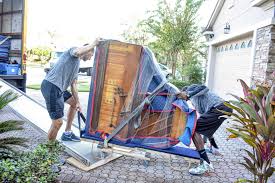When it comes to maintaining a piano, one of the most important aspects is tuning. A well-tuned piano not only sounds better but also enhances the overall playing experience. However, many piano owners find themselves asking the question: how much does it cost to tune a piano? This article will explore the factors that influence piano tuning costs, the average price range, and tips for maintaining your piano’s sound quality.
What is Piano Tuning?
Piano tuning is the process of adjusting the tension of the strings to ensure that they are in harmony with each other. Pianos are complex instruments with numerous strings (88 keys typically correspond to 220 strings in a standard piano), and over time, they can go out of tune due to various factors such as humidity, temperature changes, and regular use.
Factors Influencing the Cost of Piano Tuning
Several factors can affect how much you’ll pay for piano tuning services:
- Type of Piano: The cost can vary depending on the type of piano you have. For example, grand pianos typically require more expertise and time to tune than upright pianos, leading to higher costs.
- Location: Tuning prices can vary significantly based on geographic location. Urban areas may have higher prices due to increased demand and higher living costs.
- Condition of the Piano: If your piano hasn’t been tuned in a long time or is in poor condition, it may require extra work, such as repair or regulation, which can increase the overall cost.
- Tuning Frequency: Regular tunings (e.g., twice a year) are generally less expensive than a pitch raise, which is needed when a piano has gone significantly out of tune.
- Technician’s Experience: The experience and reputation of the piano tuner can influence the price. Highly skilled technicians may charge more for their services but may also offer a higher quality of work.
Average Costs of Piano Tuning
On average, the cost to tune a piano can range from $100 to $300 per session. Here’s a more detailed breakdown:
- Standard Tuning: Most tuners charge between $100 to $200 for a standard tuning session. This typically involves adjusting the tension of the strings to bring the piano back to concert pitch.
- Pitch Raise: If your piano is significantly out of tune, it may require a pitch raise before a standard tuning. This service can cost between $200 and $300.
- Additional Services: Many tuners also offer additional services, such as voicing, regulation, and repair, which can increase your total cost. These services often range from $50 to $150 each, depending on the complexity of the work.
How Often Should You Tune Your Piano?
The frequency of tuning depends on various factors, including the type of piano, usage, and environmental conditions. Here are some general guidelines:
- Regular Use: If you play frequently (e.g., daily), it’s advisable to tune your piano at least twice a year.
- Occasional Use: If you play less often, once a year may suffice.
- Climate Changes: Pianos are sensitive to humidity and temperature fluctuations. If you live in an area with significant seasonal changes, more frequent tuning may be necessary.
Tips for Maintaining Your Piano’s Sound Quality
To ensure your piano stays in good condition and maintains its sound quality, consider the following tips:
- Control Humidity: Keep your piano in a room with stable humidity levels (around 45-55%). Use a dehumidifier or humidifier if necessary.
- Avoid Direct Sunlight: Place your piano away from windows or direct sunlight, as exposure can cause the wood to warp and the strings to deteriorate.
- Regular Cleaning: Dust your piano regularly to keep it clean. Use a soft, dry cloth for the exterior and a vacuum with a brush attachment for the interior.
- Use It: Playing your piano regularly can help keep it in tune and prevent it from going flat.


This article is a lot more than fascinating. You actually have compiled this in such a unique way that I read it and stayed interested. I accept the points within your material.
Thanks for rendering this info so easy to go through and also understand. I’m able to value the job you did on this specific and I’m pleased with this. You’ve got a spark for this sort of writing.
You have really made me think with this particular material. Your way of writing along with your writing ability is amazing. I enjoyed going through your post and desire to read more.
I personally appreciate this article for the well-researched content as well as wonderful wording. I got so much involved in this material that I couldn’t stop reading. I’m amazed with your work as well as expertise. Thanks a lot.
I intend to come back to your post later in order to read it again and also think about the points you tend to make within it. It is already inside my favorite’s folder. Thank you very much.
Splendid content, my friend. You are truly a literary guru. This sort of post needs a good mind and lots of research. I personally applaud you on the effort you put into this specific writing.
I do not normally include responses to any sort of content on the web, but this write-up should get my personal consideration. For what it’s really worth, you’ve done a splendid job of getting across your points and I’m with you.
I personally take into consideration your work right here truly good. It’s effectively compiled, well planned and intriguing. Thank you for holding my brain working. I personally genuinely wanted that.